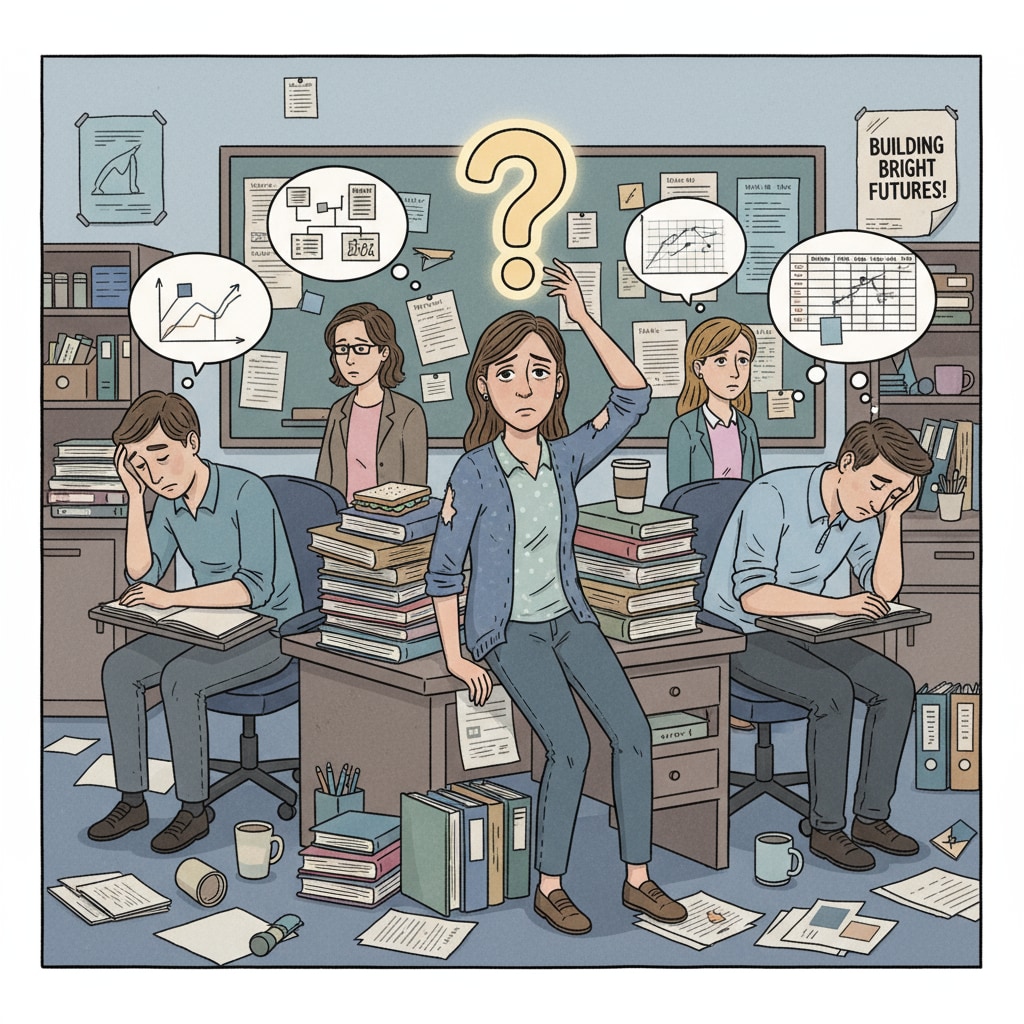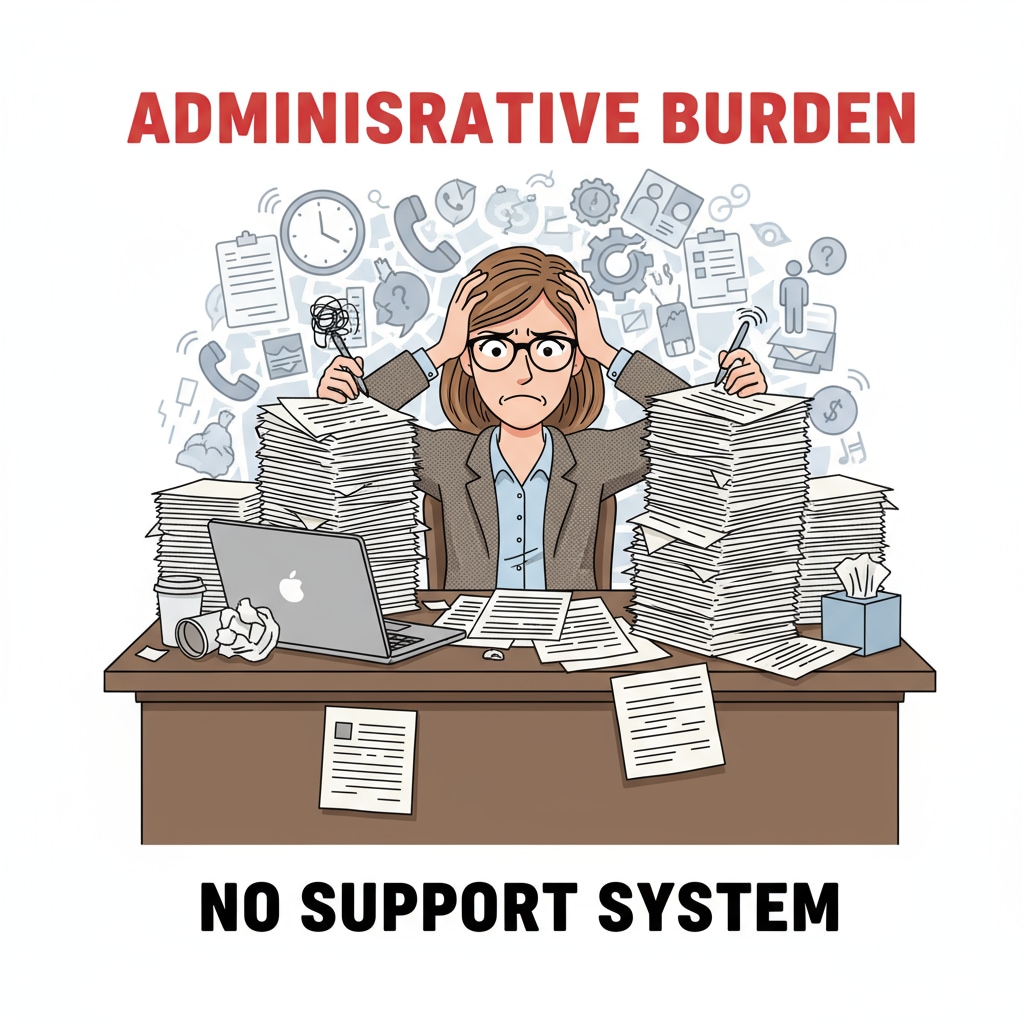Educators, work support, and job burnout are intertwined issues that significantly impact the K12 education system. When we discuss the quality of education, the mental health of teachers often takes a backseat. In fact, the well-being of educators is the cornerstone of delivering high-quality education.

The Heavy Load of K12 Educators
K12 teachers shoulder a multitude of responsibilities. They are not only tasked with imparting knowledge but also with nurturing students’ personal growth, social skills, and emotional well-being. For example, a teacher in a primary school has to manage a classroom full of energetic children, teach various subjects, and handle any behavioral issues that arise. As a result, the workload can be overwhelming. According to the National Education Association, many teachers work long hours, often far beyond the regular school day, to prepare lessons, grade assignments, and attend to students’ needs. This excessive workload is a major contributor to job burnout among educators.
The Lack of Adequate Work Support
In addition to the heavy workload, K12 educators often lack sufficient work support. They may not receive adequate professional development opportunities to keep up with the latest teaching methods and educational trends. Moreover, administrative support can be lacking. For instance, teachers may struggle to get timely assistance when dealing with difficult students or complex educational policies. This lack of support makes it harder for them to perform their duties effectively. As per Teach.org, a significant number of teachers leave the profession due to the lack of proper support. This not only affects the individual teachers but also has a negative impact on the overall education system.

The consequences of job burnout among K12 educators are far-reaching. Burnout can lead to a decline in teaching quality, as teachers may become disengaged and less enthusiastic about their work. It can also have a negative impact on students’ learning experience. Teachers who are burned out may not be able to provide the same level of care and attention to their students. In addition, burnout can take a toll on the mental health of educators, leading to stress, anxiety, and even depression.
Readability guidance: The paragraphs above use short sentences and clear explanations. Transition words like ‘for example’, ‘as a result’, and ‘in addition’ are used to enhance the flow. Each H2 section presents key points about the challenges faced by K12 educators, highlighting the issues of workload, lack of support, and the resulting burnout.


